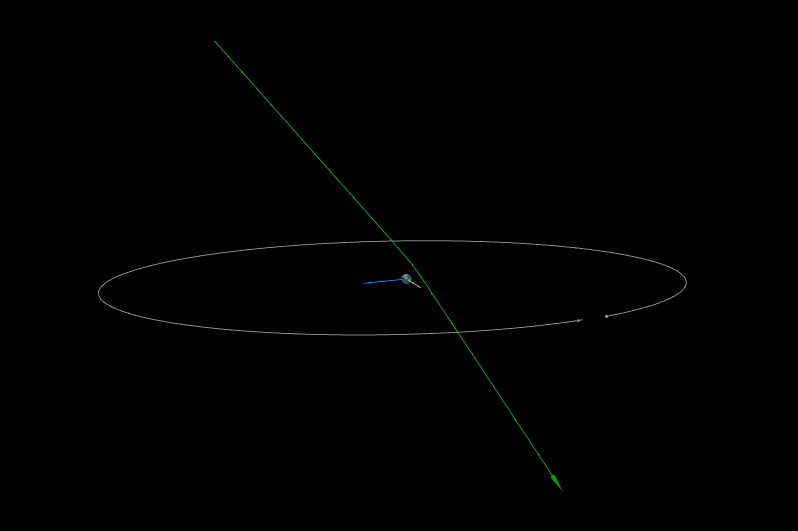

A small skimmed asteroid near Earth
Astronomers on Mount Lemmon, Arizona, discovered a car-sized asteroid yesterday (September 7, 2021). Rapid calculations of its trajectory showed that it had to pass through our planet a few hours after its discovery. According to the NASA Near Earth Object Studies Center (CNEOS), the closest approach to the asteroid came at 07:28 UTC (3:28 am EDT) on September 8th. The asteroid now bears the designation 2021 RS2. It is the closest space rock to pass through Earth to date in 2021. According to The Watchers website, it is the 81st known asteroid to fly over Earth at a lunar distance since early 2021.
The asteroid 2021 RS2 reached only 15,340 km from the Earth’s surface. Was it that close? Yes, very close. The diameter of the Earth is about 12,742 km (7,917.5 miles). Therefore, we can say that the new space rock found passed a little beyond a terrestrial diameter.
The small asteroid traveled at 63,353 km / h (39,366 miles per hour) or 17.59 kilometers per second, relative to Earth.
But … this object is small. Its size is estimated at only 3.5 meters in diameter. So he may have been taller than the tallest man on Earth, but he wasn’t big enough to put us on Earth in danger. If in 2021 RS2 had something closer to us, if it had entered the Earth’s atmosphere, friction with the air would have caused the disintegration of this small asteroid. On the other hand, a 2021 RS2-sized space rock would have caused a very impressive and bright meteor in our skies.
Why didn’t we see it before?
Small asteroids like this are not easy to detect. They are especially difficult to detect when they are located at a certain distance from the Earth. As they approach, we are more likely to detect them. It’s amazing to be able to spot them at all! A few decades ago we couldn’t have. Larger asteroids, on the other hand, typically reflect sunlight more efficiently. So we can see them from a greater distance and often weeks before. And the largest known asteroids, which are hundreds of miles in diameter, can be tracked continuously.
The astronomer KW Wierzchos (@WierzchosKacper on Twitter) made the discovery of the RS2 2021 on September 7, with the 60-inch (1.52-meter) telescope on Mount Lemmon, Arizona.

Summary: A small asteroid 2021 RS2 skimmed to less than one Earth’s diameter on September 7, 2021. It passed less than 15,000 km away.
Via NASA: the next 5 asteroid approaches